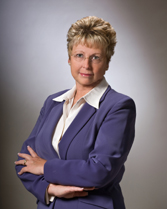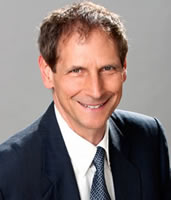Is Document Examination a Science?
As originally published by The Scientific Journal of the International Association of Document Examiners.
By: Kathy Carlson
Tel: 888-710-EXAM
Email Ms. Carlson
View
Profile on
Experts.com.
Forensic Scientists differ when defining document examination. Is it a science? If so, which
science? What is our scientific analysis? Or, as some people believe, is document examination
an art?
Definition of Science:
Science is a way of finding knowledge through well supported justification. It provides the best
explanation given observed data.
Merriam Webster - knowledge about or study based on facts learned through experiments and
observations.
Free Dictionary - the observation, identification, description, experimental investigation, and
theoretical explanation of phenomena.
Wikipedia - is a systematic enterprise that builds and organizes knowledge in the form of
testable explanations and predictions.
Different types of Science:
Pure Sciences
Pure sciences use the experimental method in order to formulate theoretical construct, explicate
natural laws, and to expand knowledge.1
Exact Sciences
Historically, this expression comes from Aristotle. He used the phrase to describe sciences that
demonstrate precise conclusions from known principles; philosophy, arithmetic, geometry,
astronomy, and harmonics. ptolemy argued that philosophy was less precise and was not based
from known principles. In the 17th century, the meaning of this expression began to change.
Mathematics no longer appeared to be a science, but the language of or an assistant to science.
Physics is now regarded as an exact science.
Hard Sciences
Hard sciences are quantifiable sciences. The strict use of scientific protocols is associated with
mathematical equations.
Natural or Physical Sciences
Natural and Physical Sciences are harder to accumulate quantifiable conclusions: weather. They
include astronomy, psychology, sociology, medical diagnosis, anthropology.
Observational Sciences
Observational Sciences cannot construct experiments to test ideas (how continents shift, how
judges react to information). To substitute for experiment, statistical calculations and/or past
data can allow for approximations. These sciences include geology, astronomy, and social
sciences. Technology allows for observational science to become experimental sciences(discovering what comets are made of). Conclusions are represented as "The known data indicates..." "The known data infers..." The data does not prove ideas are true.
Applied Sciences
Applied sciences use scientific principles for a practical application. Practicality, time, and
financial aspects are considered in applied sciences.
Examples of Various Types of Sciences:
. . .Continue to read rest of article (PDF).
Kathy Carlson, a Certified, Court Qualified Forensic Document Examiner, has practiced handwriting examination for the past seven years. She has testified many times in all state levels of court, including the Supreme Court in the Turks & Caicos. Ms. Carlson serves the United States and has rendered opinions in Alabama, Alaska, Arizona, California, Colorado, Florida, Georgia, Idaho, Iowa, Indiana, Maryland, Missouri, Montana, Nebraska, New Mexico, New York, North Dakota, Ohio, Oklahoma, Oregon, Pennsylvania, South Dakota, Texas, Utah, Washington, Wisconsin, Wyoming, Island of Cyprus, Japan, and Turks & Caicos.
©Copyright - All Rights Reserved
DO NOT REPRODUCE WITHOUT WRITTEN PERMISSION BY AUTHOR.









